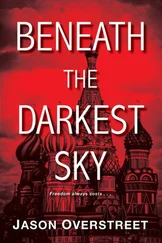Paul Bowles - The Sheltering Sky
Здесь есть возможность читать онлайн «Paul Bowles - The Sheltering Sky» весь текст электронной книги совершенно бесплатно (целиком полную версию без сокращений). В некоторых случаях можно слушать аудио, скачать через торрент в формате fb2 и присутствует краткое содержание. ISBN: , Издательство: Ecco, Жанр: Современная проза, на английском языке. Описание произведения, (предисловие) а так же отзывы посетителей доступны на портале библиотеки ЛибКат.
- Название:The Sheltering Sky
- Автор:
- Издательство:Ecco
- Жанр:
- Год:неизвестен
- ISBN:978-0060199166
- Рейтинг книги:5 / 5. Голосов: 1
-
Избранное:Добавить в избранное
- Отзывы:
-
Ваша оценка:
- 100
- 1
- 2
- 3
- 4
- 5
The Sheltering Sky: краткое содержание, описание и аннотация
Предлагаем к чтению аннотацию, описание, краткое содержание или предисловие (зависит от того, что написал сам автор книги «The Sheltering Sky»). Если вы не нашли необходимую информацию о книге — напишите в комментариях, мы постараемся отыскать её.
, the most famous of Bowles’ books, which is about three young Americans of the postwar generation who go on a walkabout into Northern Africa’s own arid heart of darkness. In the process, the veneer of their lives is peeled back under the author’s psychological inquiry.
The Sheltering Sky — читать онлайн бесплатно полную книгу (весь текст) целиком
Ниже представлен текст книги, разбитый по страницам. Система сохранения места последней прочитанной страницы, позволяет с удобством читать онлайн бесплатно книгу «The Sheltering Sky», без необходимости каждый раз заново искать на чём Вы остановились. Поставьте закладку, и сможете в любой момент перейти на страницу, на которой закончили чтение.
Интервал:
Закладка:
“Yet you say Aïn Krorfa is sad,” said Port.
“Sad?” repeated M. Chaoui with astonishment. “Aïn Krorfa is never sad. It is peaceful and full of joy. If one offered me twenty million francs and a palace, I would not leave my native land.”
“Of course,” Port agreed, and seeing that his host no longer desired to sustain the conversation, he said: “Since Madame is cold, we must go, but we thank you a thousand times. It has been a great privilege for us to be allowed to come to this exquisite garden.”
M. Chaoui did not rise. He nodded his head, extended his hand, said: “Yes, yes. Go, since it is cold.”
Both guests offered florid apologies for their departure: it could not be said that they were accepted with very good grace. “Yes, yes, yes,” said M. Chaoui. “Another time perhaps it will be warmer.”
Port restrained his mounting anger, which, even as he was feeling it, made him annoyed with himself.
“Au ’voir, cher monsieur,” Kit suddenly said in a childish treble. Port pinched her arm. M. Chaoui had noticed nothing extraordinary; indeed, he unbent sufficiently to smile once more. The musician, still strumming on his lute, accompanied them to the gate, and solemnly said: “B’slemah” as he closed it after them.
The road was almost dark. They began to walk quickly.
“I hope you’re not going to blame me for that,” began Kit defensively.
Port slipped his arm around her waist. “Blame you! Why? How could I? And what difference does it make, anyway?”
“Of course it makes a difference,” she said. “If it doesn’t, what was the point of seeing the man in the first place?”
“Oh, point! I don’t suppose there was any particular point. I thought it would be fun. And I still think it was; I’m glad we went.”
“So am I, in a way. It gave me a first-hand opportunity of seeing what the conversations are going to be like here—just how unbelievably superficial they can be.”
He let go of her waist. “I disagree. You don’t say a frieze is superficial just because it has only two dimensions.”
“You do if you’re accustomed to having conversation that’s something more than decoration. I don’t think of conversation as a frieze, myself.”
“Oh, nonsense! It’s just another way of living they have, a completely different philosophy.”
“I know that,” she said, stopping to shake sand from her shoe. “I’m just saying I could never live with it.”
He sighed: the tea-party had accomplished exactly the contrary to what he had hoped it might. She sensed what was in his mind, and presently she said: “Don’t think about me. Whatever happens, I’ll be all right if I’m with you. I enjoyed it tonight. Really.” She pressed his hand. But this was not quite what he wanted; resignation was not enough. He returned her pressure halfheartedly.
“And what was that little performance of yours at the end?” he asked a moment later.
“I couldn’t help it. He was being so ridiculous.”
“It’s not a good idea generally to make fun of your host,” he said coldly.
“Oh, bah! If you noticed, he loved it. He thought I was being deferential.”
They ate quietly in the nearly-dark patio. Most of the garbage had been cleared away, but the stench of the latrines was as strong as ever. After dinner they went to their rooms and read.
The next morning, when he took breakfast to her, he said: “I nearly paid you a visit last night. I couldn’t seem to sleep. But I was afraid of waking you.”
“You should have rapped on the wall,” she said. “I’d have heard you. I was probably awake.”
All that day he was unaccountably nervous; he attributed it to the seven glasses of strong tea he had drunk in the garden. Kit, however, had drunk as much as he, and she seemed not in the least nervous. In the afternoon he walked by the river, watched the Spahis training on their perfect white horses, their blue capes flying behind in the wind. Since his agitation appeared to be growing rather than diminishing with the passage of time, he set himself the task of tracing it to its source. He walked along with his head bent over, seeing nothing but the sand and glistening pebbles. Tunner was gone, Kit and he were alone. Everything now depended on him. He could make the right gesture, or the wrong one, but he could not know beforehand which was which. Experience had taught him that reason could not be counted on in such situations. There was always an extra element, mysterious and not quite within reach, that one had not reckoned with. One had to know, not deduce. And he did not have the knowledge. He glanced up; the river-bed had become enormously wide, the walls and gardens had receded into the distance. Out here there was no sound but the wind blowing around his head on its way from one part of the earth to another. Whenever the thread of his consciousness had unwound too far and got tangled, a little solitude could wind it quickly back. His state of nervousness was remediable in that it had to do only with himself: he was afraid of his own ignorance. If he desired to cease being nervous he must conceive a situation for himself in which that ignorance had no importance. He must behave as if there was no question of his having Kit, ever again. Then, perhaps, out of sheer inattention, automatically, it could happen. But should his principal concern at the moment be the purely egocentric one of ridding himself of his agitation, or the accomplishment of his original purpose in spite of it? “I wonder if after all I’m a coward?” he thought. Fear spoke; he listened and let it persuade—the classical procedure. The idea saddened him.
Not far away, on a slight elevation at a point where the river’s course turned sharply, was a small ruined building, without a roof, so old that a twisted tree had grown up inside it, covering the area within the walls with its shade. As he passed nearer to it and could see inside, he realized that the lower branches were hung with hundreds of rags, regularly torn strips of cloth that had once been white, all moving in the same direction with the wind. Faintly curious, he climbed the bank and went to investigate, but on approaching he saw that the ruin was occupied: an old, old man sat beneath the tree, his thin brown arms and legs bound with ancient bandages. Around the base of the trunk he had built a shelter; it was clear to see that he lived there. Port stood looking at him a long time, but he did not lift his head.
Going more slowly, he continued. He had brought with him some figs, which he now pulled out and devoured. When he had followed the river’s complete turning, he found himself facing the sun in the west, looking up a small valley that lay between two gently graded, bare hills. At the end was a steeper hill, reddish in color, and in the side of the hill was a dark aperture. He liked caves, and was tempted to set out for it. But distances here were deceptive, and there might not be time before dark; besides, he did not feel the necessary energy inside him. “Tomorrow I’ll come earlier and go up,” he said to himself. He stood looking up the valley a little wistfully, his tongue seeking the fig seeds between his teeth, with the small tenacious flies forever returning to crawl along his face. And it occurred to him that a walk through the countryside was a sort of epitome of the passage through life itself. One never took the time to savor the details; one said: another day, but always with the hidden knowledge that each day was unique and final, that there never would be a return, another time.
Under his sun helmet his head was perspiring. He removed the helmet with its wet leather band, and let the sun dry his hair for a moment. Soon the day would be finished, it would be dark, he would be back at the foul-smelling hotel with Kit, but first he must decide what course to take. He turned and walked back toward the town. When he came opposite the ruin, he peered inside. The old man had moved; he was seated just inside what had once been the doorway. The sudden thought struck him that the man must have a disease. He hastened his step and, absurdly enough, held his breath until he was well past the spot. As he allowed the fresh wind to enter his lungs again, he knew what he would do: he would temporarily abandon the idea of getting back together with Kit. In his present state of disquiet he would be certain to take all the wrong turnings, and would perhaps lose her for good. Later, when he least expected it, the thing might come to pass of its own accord. The rest of his walking was done at a brisk pace, and by the time he was back in the streets of Aïn Krorfa he was whistling.
Читать дальшеИнтервал:
Закладка:
Похожие книги на «The Sheltering Sky»
Представляем Вашему вниманию похожие книги на «The Sheltering Sky» списком для выбора. Мы отобрали схожую по названию и смыслу литературу в надежде предоставить читателям больше вариантов отыскать новые, интересные, ещё непрочитанные произведения.
Обсуждение, отзывы о книге «The Sheltering Sky» и просто собственные мнения читателей. Оставьте ваши комментарии, напишите, что Вы думаете о произведении, его смысле или главных героях. Укажите что конкретно понравилось, а что нет, и почему Вы так считаете.











